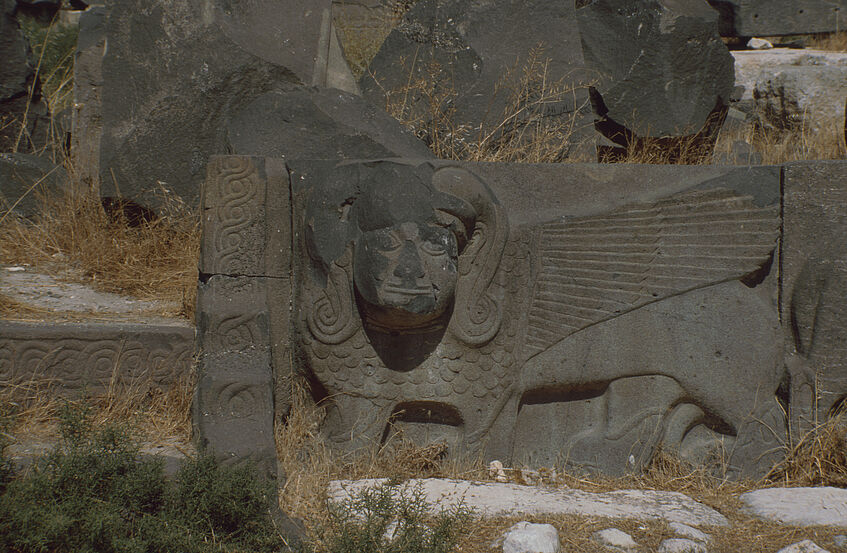Ancient Near Eastern Philology and Near Eastern Archaeology (Master)

© Stephan Procházka
The master’s programme in Ancient Near Eastern Philology and Near Eastern Archaeology aims at preparing students for independent academic work on problems relating to the investigation of ancient near Eastern cultures on the basis of primary sources. It aims at increasing previous language proficiency in Akkadian and Sumerian and familiarising students with the archaeological methodology and artefacts of the ancient Near East. By completing seminars, students gain an overview of the entire discipline and current research questions. In alternative compulsory modules, students have the opportunity to increase their knowledge of languages by learning an additional Semitic language, or expand their archaeological competences.
Master of Arts
Degree Programme Code: 066 672
4 semesters / 120 ECTS credits
Language: German
NO entrance examination
Facts & Figures
- Students: n.a.
- Graduates in the last academic year: n.a.
- Number of semesters needed for graduation (median): n.a.
Data updated on: 03.12.2024
Attention
Instruction Language German
Please note that the instruction language of this programme is German. To start the degree programme, you need to hold a certificate of German proficiency on C1 level.
Admission Procedure
Information about the admission procedure
Information on Previous Studies:
In any case eligible degree programmes at the University of Vienna:
Getting started
Getting Informed
Study Programme
The master’s programme consists of compulsory modules, an alternative compulsory module and a group of elective modules, dealing with the following subjects: seminars on Akkadian, Sumerian and archaeology, Mesopotamian cultural history, philology, Semitic studies or archaeology, seminar on archaeology II, philology II, South Arabia in the past and present and ancient South Arabia. In addition, students have to complete a master’s module, comprising a seminar, a master’s thesis and a master’s examination.
Five concepts
which you will deal with during your studies:
- Akkadian
- Sumerian
- Archaeology
- Semitic studies
- Mesopotamia
... and many more.
Overview of the programme structure & topics
Here you find the current offer of courses for this programme to gain better insight into the topics and structure. For more information please click on the respective level.
After Graduation
Graduates are qualified to work independently in the subject-specific occupational fields, i.e. for museums, as well as for research and educational institutions, such as universities and academies. Moreover, the degree programme prepares them for continuing academic studies.
Students acquire abilities that prepare them for independent academic work. In addition, they obtain the necessary competences characteristic of a philological and cultural studies discipline with a historical focus, including the ability to analyse a topic systematically and methodically and edit it in a linguistically competent and concise manner. This comprehensive education enables them to work in cultural and research departments for a wide range of different media.
Furthermore, the master’s programme as an anthropological and (cultural) historic discipline aims at developing an understanding of societal, economic and cultural processes, qualifying graduates for a career at international organisations, different areas of continuing education and training, adult education and tourism.
Graduates' Perspective on the Degree Programme
Graduates ...
- say that this degree programme receives the grade: 1.9 (good)
- rate the level of difficulty as: 3.4 (appropriate)
→ These results are basd on feedback from 15 graduates.
*You can find further assessments of the degree programme from its graduates’ perspective in the graduate survey of the master’s programmes in Oriental Studies (in German).
Graduates ...
- find employment within 2 months after graduation on average.
- earn an average of € 2,719 (women) and € 2,702 (men) gross per month within three years after graduation.
- work full time at a percentage of 68% (women) and 62% (men) within three years after graduation.
*You can find further information on career entry and career paths in the tracking of graduates "Arts and Humanities".
